Related Research Articles
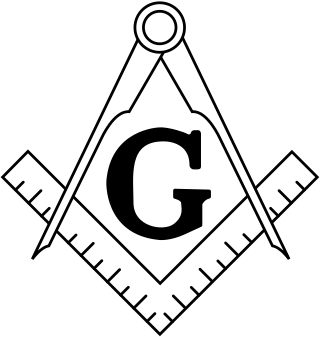
Freemasonry or Masonry refers to fraternal organisations that trace their origins to the local guilds of stonemasons that, from the end of the 14th century, regulated the qualifications of stonemasons and their interaction with authorities and clients. Modern Freemasonry broadly consists of two main recognition groups: Regular Freemasonry, which insists that a volume of scripture be open in a working lodge, that every member professes belief in a Supreme Being, that no women be admitted, and that the discussion of religion and politics do not take place within the lodge; and Continental Freemasonry, which consists of the jurisdictions that have removed some, or all, of these restrictions.
The history of Freemasonry encompasses the origins, evolution and defining events of the fraternal organisation known as Freemasonry. It covers three phases. Firstly, the emergence of organised lodges of operative masons during the Middle Ages, then the admission of lay members as "accepted" or "speculative" masons, and finally the evolution of purely speculative lodges, and the emergence of Grand Lodges to govern them. The watershed in this process is generally taken to be the formation of the first Grand Lodge in London in 1717. The two difficulties facing historians are the paucity of written material, even down to the 19th century, and the misinformation generated by masons and non-masons alike from the earliest years.
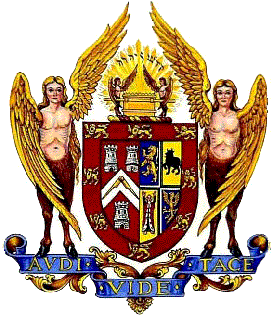
The United Grand Lodge of England (UGLE) is the governing Masonic lodge for the majority of freemasons in England, Wales, and the Commonwealth of Nations. Claiming descent from the Masonic Grand Lodge formed 24 June 1717 at the Goose & Gridiron Tavern in London, it is considered to be the oldest Masonic Grand Lodge in the world, together with the Grand Lodge of Scotland, and the Grand Lodge of Ireland.
Anti-Masonry is "avowed opposition to Freemasonry", which has led to multiple forms of religious discrimination, violent persecution, and suppression in some countries as well as in various organized religions. However, there is no homogeneous anti-Masonic movement. Anti-Masonry consists of radically differing criticisms from frequently incompatible political institutions and organized religions that oppose each other, and are hostile to Freemasonry in some form.
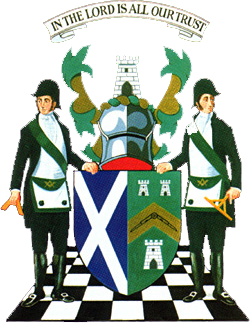
The Grand Lodge of Antient Free and Accepted Masons of Scotland is the governing body of Freemasonry in Scotland. It was founded in 1736. About one third of Scotland's lodges were represented at the foundation meeting of the Grand Lodge.
While many Christian denominations either allow or take no stance on their members joining Freemasonry, others discourage or prohibit their members from joining the fraternity.
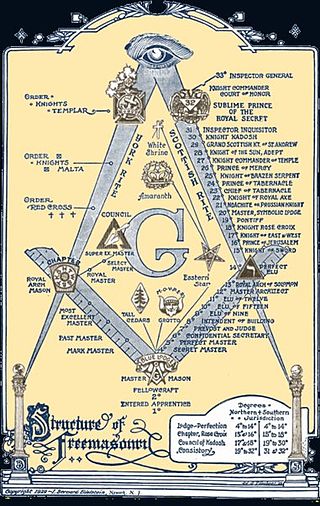
There are many organisations and orders which form part of the widespread fraternity of Freemasonry, each having its own structure and terminology. Collectively these may be referred to as Masonic bodies, Masonic orders, Concordant bodies or appendant bodies of Freemasonry.
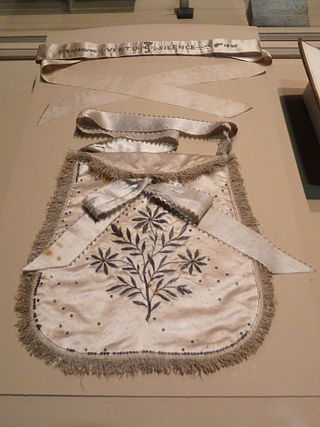
Freemasonry has had a complex relationship with women for centuries. A few women were involved in Freemasonry before the 18th century, despite de jure prohibitions in the Premier Grand Lodge of England.
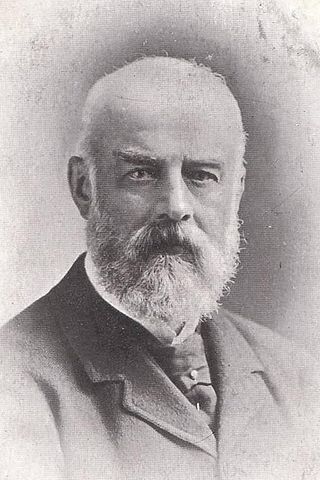
Sir Thomas Frederick Halsey, 1st Baronet, was an English Conservative Party politician who sat in the House of Commons from 1874 to 1906.

Sir Edmund Robert Bartley Bartley-Denniss KC was an English barrister, prominent Freemason and Conservative Party Member of Parliament in the United Kingdom. He was also a pioneer of the sport of cycling in Britain.

Major Charles Henry Lyell was a British politician and Liberal Member of Parliament who died in the First World War.

The New Welcome Lodge, No. 5139, is a British Masonic Lodge open to all men working in the Palace of Westminster. At its founding, membership was limited to Labour Party Members of Parliament, but its scope was broadened soon after. The lodge is alleged to have influenced the outcome of the 1935 Labour Party leadership election.

William Wither Bramston Beach was an English Conservative politician, who served in the House of Commons for 44 years between 1857 and 1901, becoming Father of the House of Commons in 1899.
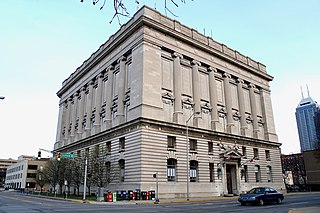
The current Indianapolis Masonic Temple, also known as Indiana Freemasons Hall, is a historic Masonic Temple located at Indianapolis, Indiana. Construction was begun in 1908, and the building was dedicated in May 1909. It is an eight-story, Classical Revival style cubic form building faced in Indiana limestone. The building features rows of engaged Ionic order columns. It was jointly financed by the Indianapolis Masonic Temple Association and the Grand Lodge of Free and Accepted Masons of Indiana, and was designed by the distinguished Indianapolis architectural firm of Rubush and Hunter.
Martin John Short was a British TV documentary producer and author. He is best known for his exposés on organized crime and on Freemasonry.
Freemasonry in Scotland in lodges chartered by the Grand Lodge of Scotland comprises the Scottish Masonic Constitution as regular Masonic jurisdiction for the majority of freemasons in Scotland. There are also lodges operating under the Scottish Masonic Constitution in countries outside of Scotland. Many of these are countries linked to Scotland and the United Kingdom through the Commonwealth of Nations and prior colonies and other settlements of the British Empire although there are several lodges in countries such as Lebanon, Belgium, Chile and Peru, which do not have such connections.

Museum of Freemasonry, based at Freemasons’ Hall, London, is a fully accredited museum since 2009, with a designated outstanding collection of national importance since 2007 and registered charitable trust since 1996. The facility encompasses a museum, library, and archive.

Freemasonry in Suffolk dates back to 1772 when the Suffolk "Province" was founded. In 2008 the then Provincial Grand Master of Suffolk, Barry ross, claimed they had 3,000 members organised in 66 lodges. They operate out of 21 centres. As of 2024 there are now 69 lodges in Suffolk. The Freemasons' Hall was built in Soane Street, Ipswich in 1897. It is a grade II listed building run by the Ipswich Masonic Hall Trust.
Isaac Newton University Lodge No 859 is a Masonic Lodge based at the University of Cambridge for matriculated members of the university. As of 2013 there were approximately 200 members. This is about half the 397 subscribing members in 1955. The lodge meets at Bateman Street Masonic Hall, with the lodge's badge or standard a combination of Isaac Newton's coat of arms and the University of Cambridge's coat of arms. The lodge is also a member of the Association of Medical, university, and Legal Lodges.
References
- ↑ Hansard debate by Max Madden, MP for Bradford South, Hansard, 6 April 1989 "That this House congratulates Martin Short on the publication of his book, Inside the Brotherhood ; notes that the honourable Members for Ilford South, Croydon South, Chichester, Erewash, Banbury and Belfast North told Mr. Short they were Masons ; further notes that Mr. Short believes that the honourable Members for Bury South, Reading East and Keighley are Masons ; and finally notes Mr. Short reveals the Masonic Lodge to which Right honourable and honourable Members, Parliamentary Officers and staff belong is called the New Welcome Lodge (5139) which was consecrated in 1929 and meets five times a year at Freemason's Hall in London, and that Parliamentary Journalists who are Mason's belong to the Gallery Lodge (1928).] "
- ↑ Recipients of email to lodge complaint?, UK Press Gazette
- ↑ page 262, Representative British Freemasons, by Kessinger Publishing Company